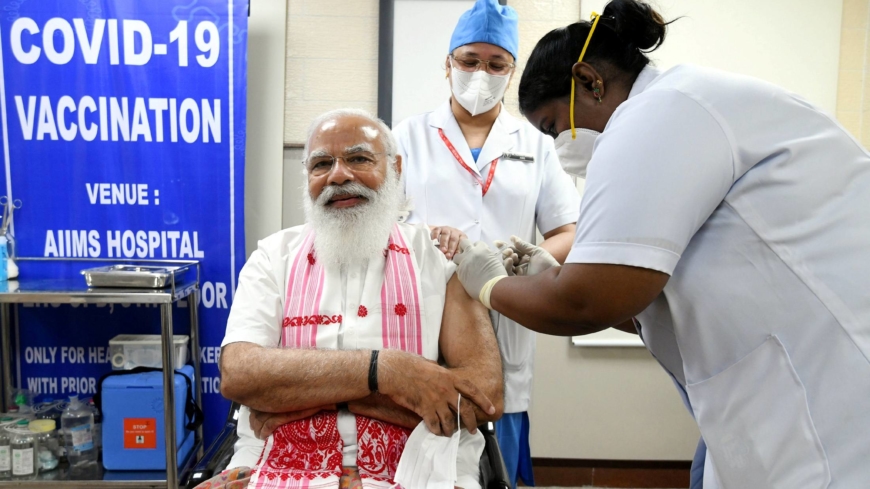[ad_1]
An Indian COVID-19 vaccine that generated controversy when it was granted emergency approval before its final stage testing was complete has been shown to provide strong protection against the novel coronavirus in an interim analysis of an advanced clinical trial.
Covaxin, which was co-developed by Hyderabad-based Bharat Biotech International Ltd. and the Indian Council of Medical Research, showed an efficacy rate of 81% in those without prior infection after a second dose, the company said in a statement Wednesday. That’s better than Bharat Biotech’s guidance last year of around 60% and the country’s benchmark of 50% for vaccines targeting the virus.
The vaccine-maker didn’t say if the efficacy rate was measured at protecting against all symptoms, including mild coughs, or just serious reactions to the disease that require hospitalization.
The findings cement Bharat Biotech’s claims of the vaccine being safe and may help overcome vaccine hesitancy as India rolls out one of the world’s biggest inoculation programs to contain its massive outbreak. The data is also a rebuttal for critics who had questioned the unprecedented haste with which the indigenously produced shot was approved, in early January, and deployed among India’s front-line health care workers, even before providing any Phase 3 trial data.
Bharat Biotech’s Chairman Krishna Ella said in the statement that Covaxin has also shown “significant immunogenicity†against emerging variants. In a separate video address, he noted that “many people criticized us.â€
The Phase 3 trial that enrolled 25,800 participants age 18 to 98 “was a challenging task for us,†Ella said. The interim analysis was based on 43 cases, of which 36 cases of COVID-19 were observed in the placebo group against seven cases seen in a set injected with Covaxin.
In June last year, India’s drug regulator permitted the family-run and closely-held Bharat Biotech to develop a homegrown vaccine in record time. Soon after, work on Covaxin was bogged down by controversies ranging from unrealistic government schedules to sporadic reports of adverse reactions.
Despite the vaccine gaining emergency use approval in January, many of those in the priority list to receive the initial injections failed to turn up for their shots, concerned that they may be given the experimental vaccine.
Sign-ups among those willing to be vaccinated have improved in the past week after India’s government partially allowed a private market to open and expanded the campaign to those over 60 and those over 45 who were at risk.
Officials in New Delhi and the management of Bharat Biotech have vigorously defended the vaccine’s safety and effectiveness during the rollout. Prime Minister Narendra Modi was also injected with Covaxin on March 1 as he sought to allay fears around the shot and urged Indians to step forward for inoculation.
The new data may boost uptake in a nation that has registered the world’s second-largest outbreak and is reporting a further spurt of infections in some states such as Maharashtra, triggering fears of regional restrictions after a national lockdown in March last year that hobbled the economy.
Bharat Biotech said it will share more details from the trial at a later date and that an additional interim analysis is planned for 87 cases with a final reading expected for 130 cases, both of which will be submitted to a peer-reviewed journal for publication.
India has also approved the shot from Astrazeneca PLC’s local partner, the Serum Institute of India Ltd., but the country’s inoculation campaign saw a tepid response in the initial weeks, endangering its target of reaching about a quarter of its population by August.
With a capacity to manufacture about 300 million shots on an annual basis, the promising efficacy data will likely aid Bharat Biotech find further export markets. The company is supplying 20 million Covaxin doses vaccine to Brazil and has signed an agreement with Ocugen Inc. to co-develop the vaccine for the U.S.
Mora than 40 countries have expressed interest in Covaxin, the vaccine-maker said in the statement.
In a time of both misinformation and too much information, quality journalism is more crucial than ever.
By subscribing, you can help us get the story right.






